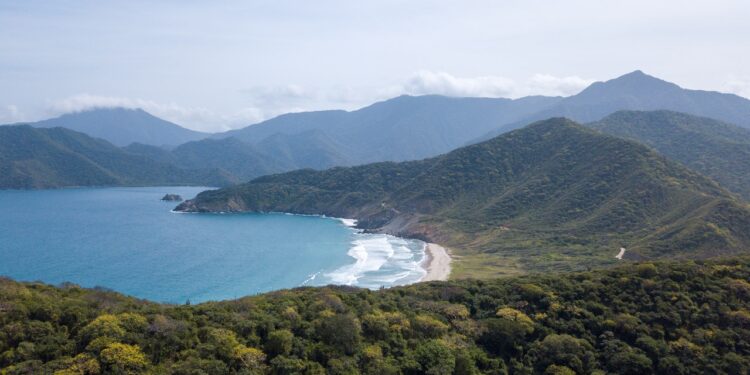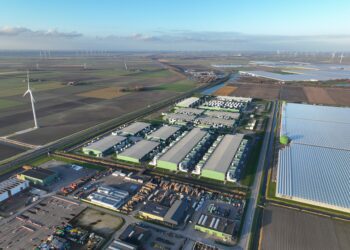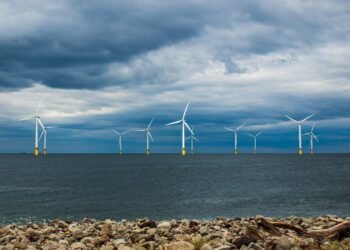The president of Grupo Energía Bogotá, Juan Ricardo Ortega, on the challenges of energy transition and environmental protection.
When Juan Ricardo Ortega was appointed president of Grupo Energía Bogotá (GEB), Colombia’s largest natural gas transporter and second-largest energy transmitter, in July 2020, he brought a unique set of skills and experiences to the role. Ortega was trained in economics, finance, and mathematics at the University of the Andes and then at Yale (where, at age 54, he’ll soon complete a Ph.D. in economic development). He began his career as chief economist at multinational banking company BBVA in Bogotá in the 1980s but later transitioned to the public sector, when he was appointed economic advisor to then Colombian President Andrés Pastrana.
Ortega went on to hold other high-level public positions, such as vice minister of finance and commerce and secretary of finance for the City of Bogotá, as well as professorships at Colombian universities. From 2014 to 2020, he worked as an advisor to the Inter-American Development Bank in Washington, DC, but returned to Colombia when he was appointed president of GEB. He joined at a critical moment, as the 125-year-old company expands its portfolio to include nonconventional renewable energy and increases its presence in Latin America. For example, in June 2021, GEB announced an agreement with the Italy-based energy multinational Enel to create Enel Colombia, a subsidiary that will include additional equity value of US$1.4 billion in renewable energy assets located in Colombia, Panama, Costa Rica, and Guatemala.
GEB is well positioned to make these moves. It stands out among other Colombian public utilities because of its shareholder structure—although the City of Bogotá owns the majority of its shares (65.7%), close to 35% are privately held—which helps it stay above the political fray. GEB’s net profits rose by 36% in 2020, and it will distribute $437 million in dividends this year. In a recent video interview with strategy+business, Ortega shared his thoughts on the future of the energy sector in Colombia, as the country moves beyond hydropower to embrace other renewables.
S+B: Looking ahead to the next few decades, how do you see your business transforming to meet energy needs in Colombia and, more broadly, in Latin America?
ORTEGA: The climate change and energy transition agenda is central for Colombia, a country where 70% of electricity already comes from renewables [the majority from hydropower]. Colombia’s government has set a goal of reducing net carbon emissions by 51% by 2030. That is a very aggressive goal.
At the same time, I think it would be unreasonable for a country like Colombia to commit to zero net emissions for the next ten to 20 years. Colombia contributes around 92.5 million tons of carbon a year. The world’s total figure is around 39 billion tons, which means Colombia’s carbon emissions are .25% of the global share. Therefore, if we commit to a zero net emissions strategy, it would hinder Colombia’s capacity to compete with other countries and to boost its economy, especially because the country has a lot of potential in gas.
I think there are very solid arguments to defend gas as a transition energy source in Colombia. It can support growth and employment and help Colombia become an increasingly competitive economy. If the heavy cargo industry, in particular, makes the transition [from oil] to gas, it would help to reduce particulate matter.
I also believe the most sensible decision is to switch commercial vehicles to run on electricity. That’s why our bet is on electric power. We believe it will be one of the big winners in the next 20 years. There is also a huge opportunity in the region as the transmission infrastructure from Mexico to Chile is integrated to enable a more efficient delivery of electric power from plants to customers. Colombia can greatly benefit from this process. We have the companies, the contractors, the value chains, and the expertise to help generate more resilient transmission networks throughout the region.
There are important growth opportunities in this matter, and that is why we are investing in Peru, Brazil, Guatemala, and Colombia—countries where we have a large transmission network, with thousands of kilometers of lines in operation. For example, in Peru we are leaders with ISA REP and ISA Transmantaro [energy transmission companies], and in Guatemala, we are working on an important energy transmission project. We want to position the company so that in the future we can make the most out of this integrated infrastructure and maximize growth.
S+B: What renewable sources will play a role in Colombia’s energy transition?
ORTEGA: Colombia has enormous wind and solar power potential in La Guajira. [Located at the northern tip of the country along the Caribbean Sea, the region gets abundant sunlight, and its average wind speed is more than double the world’s average.] Vichada, on the eastern plains, has great solar intensity, and southern Galerazamba, toward the north of the country, also has strong winds. There is also an opportunity for biomass energy. Colombia is already trying to make sugarcane into a source energy, and I think it can produce energy from methane emissions from landfills.
I have no doubt that hydrogen will be a viable source of power within the next ten to 15 years. We are trying to learn from Chile about hydrogen’s potential. Chile already has an excess of unconventional renewables in Atacama. They also have a mining industry that demands ammonia and heat, and, in that sense, hydrogen comes almost naturally to them.
In Colombia, hydrogen’s potential is not so obvious. To make it feasible, we first need energy available at a very low cost. For that, we need to grow our solar and wind farms in the next few years. We then need to do things like upgrade our gas pipelines to make sure they are less prone to corrosion. [Hydrogen, through a deterioration process called hydrogen embrittlement, can lead to corrosion and cracking in metals.] I don’t see this transformation happening yet. The cost of storing hydrogen and of transporting it has made that difficult. However, you already see countries like Germany with hydrogen stations and vehicles. And that is why I think this is a source of energy we need to pay close attention to. We need to study how to get there.
Finally, our recent agreement with Enel will allow us to have a share in the nonconventional renewable energy market. A new, international company is being formed from the merger of Emgesa, Codensa, and Enel Green Power. The new company will have a presence in Colombia, Panama, Costa Rica, and Guatemala, and will have an installed capacity of 5,470 megawatts by 2025, with a primary focus on renewable energy.
By Carlos Mario Lafaurie and Mariana Palau
Read the full interview here.












